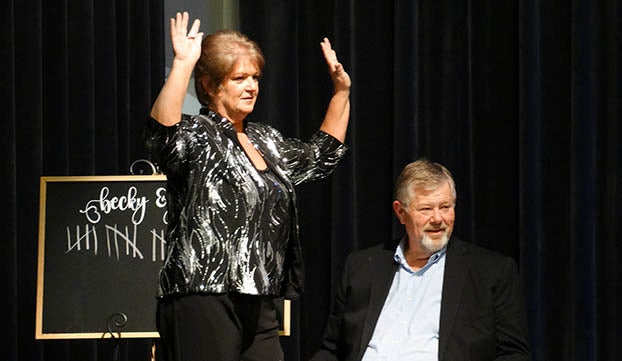AND NOW YOU KNOW – Remembering veterans and a cold December in 1944
Published 12:08 am Saturday, December 31, 2022
|
Getting your Trinity Audio player ready...
|
This writer started his “writing career” in January 2007. One of my first stories written was about a young soldier coming home for leave. In the process of doing the interview, I discovered his grandfather had been a medic in World War II. About a week later I asked about doing an interview with the WWII medic. Leonard Richardson, the grandfather/former medic, agreed to meet me. It was the beginning of a friendship that lasted several years, until Richardson’s death.
Richardson had been a medic in the 28th Infantry Division from after his high school graduation until the end of the war. After boot camp he was assigned to the 28th Division to duty as a medic. He said about all the training he was given was to sprinkle sulfa power on a wound and wrap it with a bandage.
His entry into combat was in July 1944, about a month after D-Day June 6, 1944. He went ashore at Omaha Beach. The division contained 15,000 soldiers and would spend 196 days in combat. Richardson would be involved in heavy combat in the Colmar Pocket and the Hurtgen Forest as part of the Battle of the Bulge.
Like most veterans, he was modest and a bit hesitant at times to talk about his experiences. One of the things he did talk about was how cold that winter was, especially December around Christmas. The winter of 1944 was the coldest recorded in European history to that time. At times there would be heavy snowfall, once there was 10 to 12 inches of snowfall in a 24 hour period. Temperatures were often below zero for days at a time. They only had their uniforms and boots for warmth. Rations were cold, warm food only happened a time or two in the 45 days of combat in the forest. Richardson said they had heavy wool coats that were “pretty warm”, but often on guard duty, not moving much, the coats would freeze, and other soldiers would have to break the ice that formed on the coat so the man could move.
He said it was hard to keep their feet dry, frostbite was a problem and there was not much he could do. He always felt bad about men being in pain and him not being able to do much to help them. Bad cases of frostbite would be sent to the rear area for hospital treatment. Some just had to stay on the front line until it turned worse. With so many days being foggy and damp it was hard to do anything for them.
Richardson said the things that were really scary were the buzz bombs and the “screaming meemies” (rockets). He said you would hear the buzz bomb’s engine, then the engine would stop. They would know the bomb was going to come down but did not know where. When it fell and exploded, it would cause frozen debris and snow to fall on the troops. The rockets would usually explode in treetops and cause frozen limbs and snow to fall on them. Those attacks were often as fatal as artillery fire.
Richardson walked from Omaha Beach, through France, into Germany and back to Omaha Beach. He said coming back as they were approaching the Omaha Beach area, they were on a hill, and he saw in the distance what he thought was a huge herd of sheep. As he got closer, he saw they were thousands of white crosses. “It was such a sad sight that I started crying”, he said.
After his discharge he returned home to Oberlin, Louisiana. He married and looking for a job, found his way to the Gulf Refinery in Port Arthur. They moved to Mauriceville and later to Bridge City.
Richardson and I became close friends. For some reason he opened up to me and told me things he had not told his family about his service. One day Bonnie, his wife, called me and told me they wanted me to visit them. She had been working for several years to obtain replacement medals. His had been lost over the years and moves. Among the medals was a small black box. I had an idea what it was…..I opened the box and it was a Bronze Star Medal. I looked up and said “Why did you get this?” .He sort of hung his head and said quietly, “I dunno, I guess I must have saved some lives.” Heroes are often modest.
On cold days in December, I think about Leonard Richardson and the hundreds of thousands of soldiers like him that endured so much during that very cold winter.
“And now you know”






